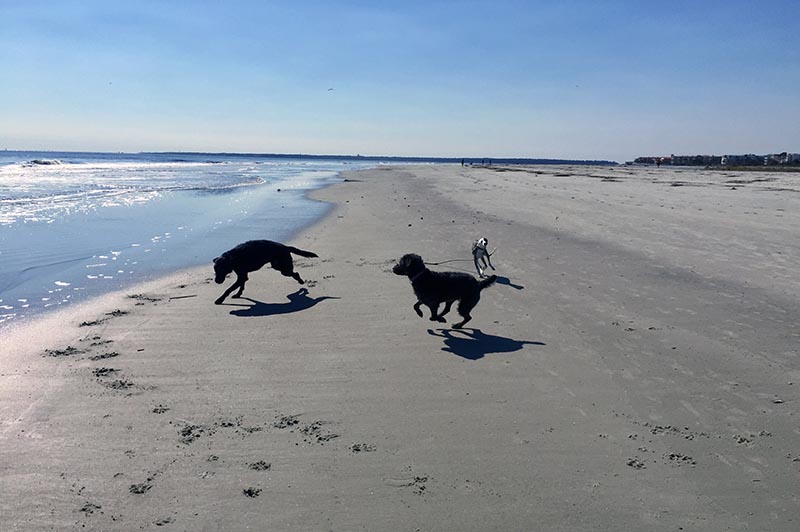Will a Great Pyrenees Attack an Intruder? Vet-Reviewed Protective Instincts

Updated on
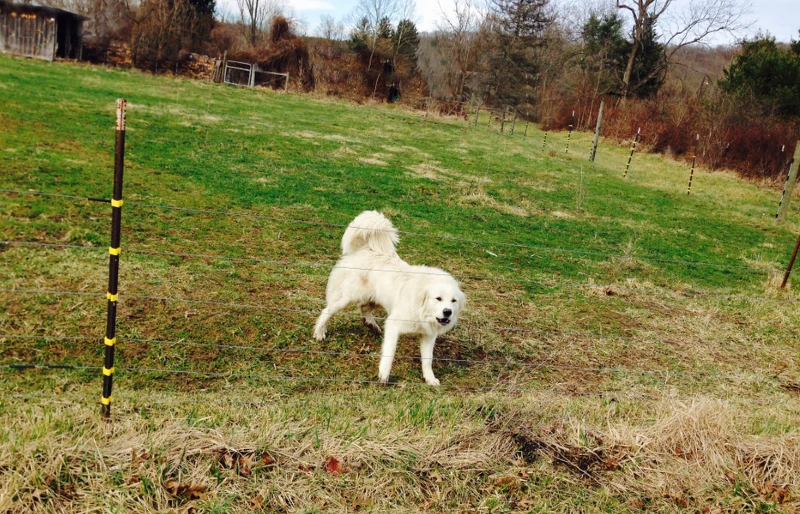
Click to Skip Ahead
The Great Pyrenees is a giant dog breed that hails from the Pyrenees Mountains where it was first bred to guard livestock. The massive breed is cool, calm, loving, and devoted to their humans. Plus, they have a strong guarding instinct, so they will protect anything they deem to be part of their family or home.
This means that a Great Pyrenees may attack intruders, although, as well as being governed by the breed of the dog, temperament is also determined by the characteristics of the individual animal, so your Pyrenees may be different.
Great Pyrenees History
The Great Pyrenees comes from the Pyrenees Mountains in France and Spain. The breed was first reared in approximately 3,000 B.C. as an aid to shepherds in the mountainous region.
Its role with shepherds meant that the breed was first seen as belonging to peasants, but King Louis XIV of France named the breed the Royal Dog of France in 1675, and it soon became a popular guardian of the royal estate. Members of the elite followed suit, taking on these giant dogs to protect their own estates.
Throughout the 19th Century, the breed gained popularity throughout Europe and was even used to improve St. Bernard stock in Switzerland.
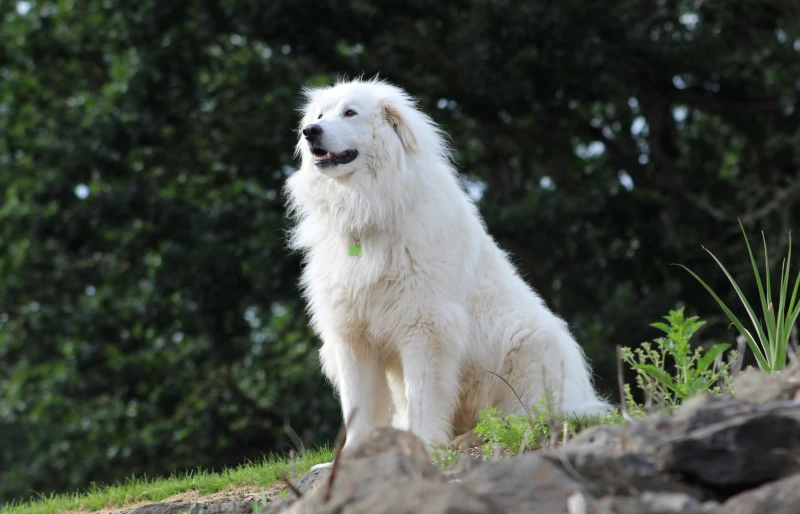
Guarding Instinct
The breed is known to be loving with their family, but they can be shy and even a little standoffish around strangers. However, it will also greatly depend on their early socialization and upbringing. They also retain the guarding instinct that made them such an invaluable asset to shepherds and nobility hundreds of years ago. They will bark and potentially attack anything they deem to be a threat, mainly wild animals that may endanger their herd.
This breed makes a good guard dog, but it also means that responsible owners will need to socialize and train their Great Pyrenees to ensure they are comfortable around strangers or visitors to the house.
The 5 Tips to Socialize a Great Pyrenees
The Great Pyrenees can make an excellent family pet. They are generally gentle with kids, form a close bond with their adults, and are lively and energetic enough for long walks and outdoor adventure, which isn’t always the case with such massive breeds.
However, they can be protective to the point of being overprotective. Socialization and training can help manage their guarding instincts so that your Pyrenees doesn’t think every noise and every movement is a potential threat. This would maybe be more obvious and prominent in dogs that are used for guarding other animals, such as a herd of sheep or a private property,where they are always on the lookout for potential dangers, unlike dogs that are purely pets. Again, this is where training and working with your dog on a daily basis influences their temperament and confidence.
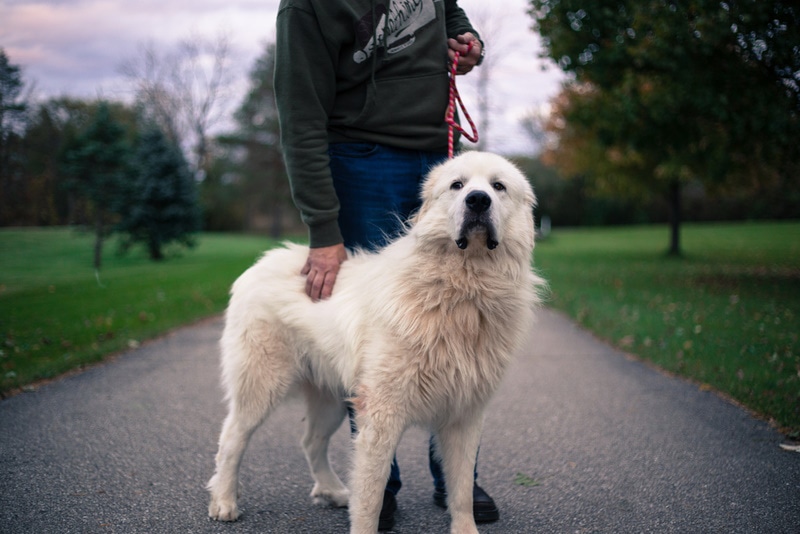
1. Start Early
Socialization of a puppy starts with their mum and litter mates. The puppy will take cues from their mum, but once the puppy passes to a new family, it is the responsibility of their human owners to take charge in this regard and other matters of training. You should aim to start socializing your new puppy as soon as they have had a chance to acclimatize to their new home.
Once vaccinated, start going outside on a leash. Initially, you may not make it past the end of the drive, but this will give your pup a chance to get used to the outside world. You can move on to short walks up and down the road before eventually moving on to walks around the block and longer walks.
2. Introduce New Stimuli
The aim of socialization is to introduce your puppy to a whole range of new people and new situations so that they do not view new experiences as threatening or intimidating.
Walks should be varied, which means taking different routes so your dog meets new and different people. This will also introduce them to new surroundings. Walk at different times of the day, too. Join puppy classes and attend group walks to get your young dog used to meeting other pups in a safe and accepting environment.
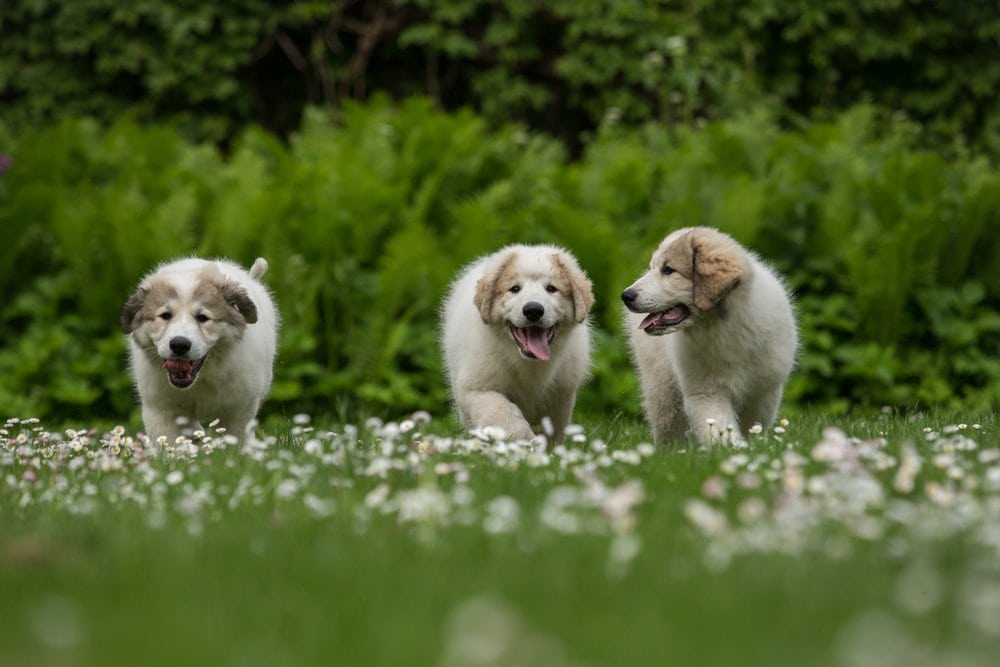
3. Keep Sessions Short
When a young dog goes out for the first time, the whole experience can be incredibly overwhelming. If the situation becomes too much, it can set your socialization and training efforts back, so keep early sessions really short and only increase them when you are confident that your dog is confident.
4. Train Good Manners
Training is also vital to ensuring your dog is a well-adjusted and sociable pet. Join puppy classes when they are young. As well as using the opportunity to meet other dogs, this also presents you with the chance to learn the basics of training your dog. Start by teaching good manners, which means preventing your dog from jumping up and having them wait patiently before being allowed to meet other dogs and people.
Training tends to work best with positive reinforcement which means praising and rewarding positive actions. If your pup jumps up, firmly say no and put all four feet on the floor. When they calmly stand, or ideally sit, praise them and give them a reward. In time, your dog will sit when approaching new people, which is especially important with a breed that can grow to weigh 100 pounds or more. It will be much easier to socialize a well-mannered puppy.
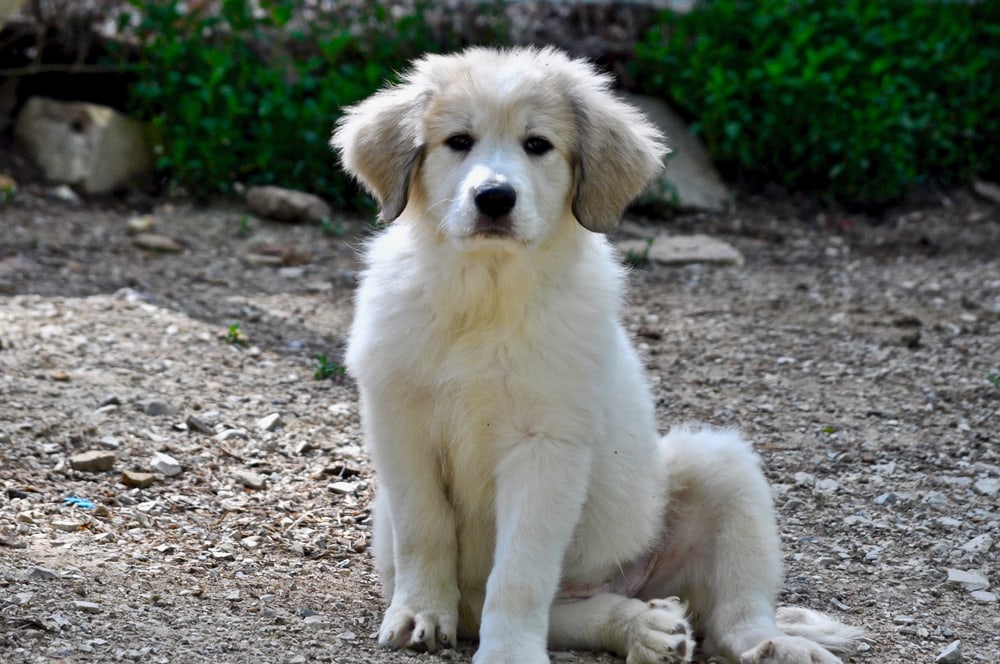
5. Teach Basic Obedience
As well as teaching good manners, you should make a start on teaching basic obedience. This means teaching commands like sit, down, stay, and leave. Again, these will be important when socializing your dog because they will allow you to control a situation and take the onus off your dog. They may not feel they need to protect you if they believe you are in charge.
Frequently Asked Questions
Is a Great Pyrenees a Good Family Dog?
The Great Pyrenees may be known for being a protective dog, but they are also a loving dog that is gentle with family and very loyal. They have an empathetic sense to be gentle around young children, too, which can make them an ideal family dog.
Are Great Pyrenees Good Walking Dogs?
Typically, the Great Pyrenees needs at least 1 hour of walks a day, which is best split over two walks. The breed is large so can manage a good pace, but they don’t necessarily do well with more intense forms of exercise. They can manage some longer walks but are not the best breed if you want a dog to go on day-long hikes every weekend.
Are Great Pyrenees Gentle?
Generally, the Great Pyrenees is a well-mannered dog that is gentle with family members, including children. But to reach this point, they do require some socialization and training from a young age. You should always supervise time and contact between dogs and young children, especially when they are as large as the Great Pyrenees. Accidents do happen, and because of the stature of the Pyrenees, even a slight accident can cause bad injuries.
Conclusion
The Great Pyrenees is a giant breed that was bred to guard livestock and assist shepherds of the Pyrenees Mountains. Although gentle and loving with family, the breed can be wary of strangers, thanks to their breeding as a guardian dog. With early socialization, ongoing training, and knowledgeable handling, though, there is no reason that a Great Pyrenees can’t make a great family dog.
However, that guarding instinct is likely to remain intact and this means that if they perceive a threat to family or even the home, they may attack to ward off would-be attackers, or at least they will bark and issue them with a warning.
Featured Photo Credit: Wendy van Overstreet, Shutterstock







